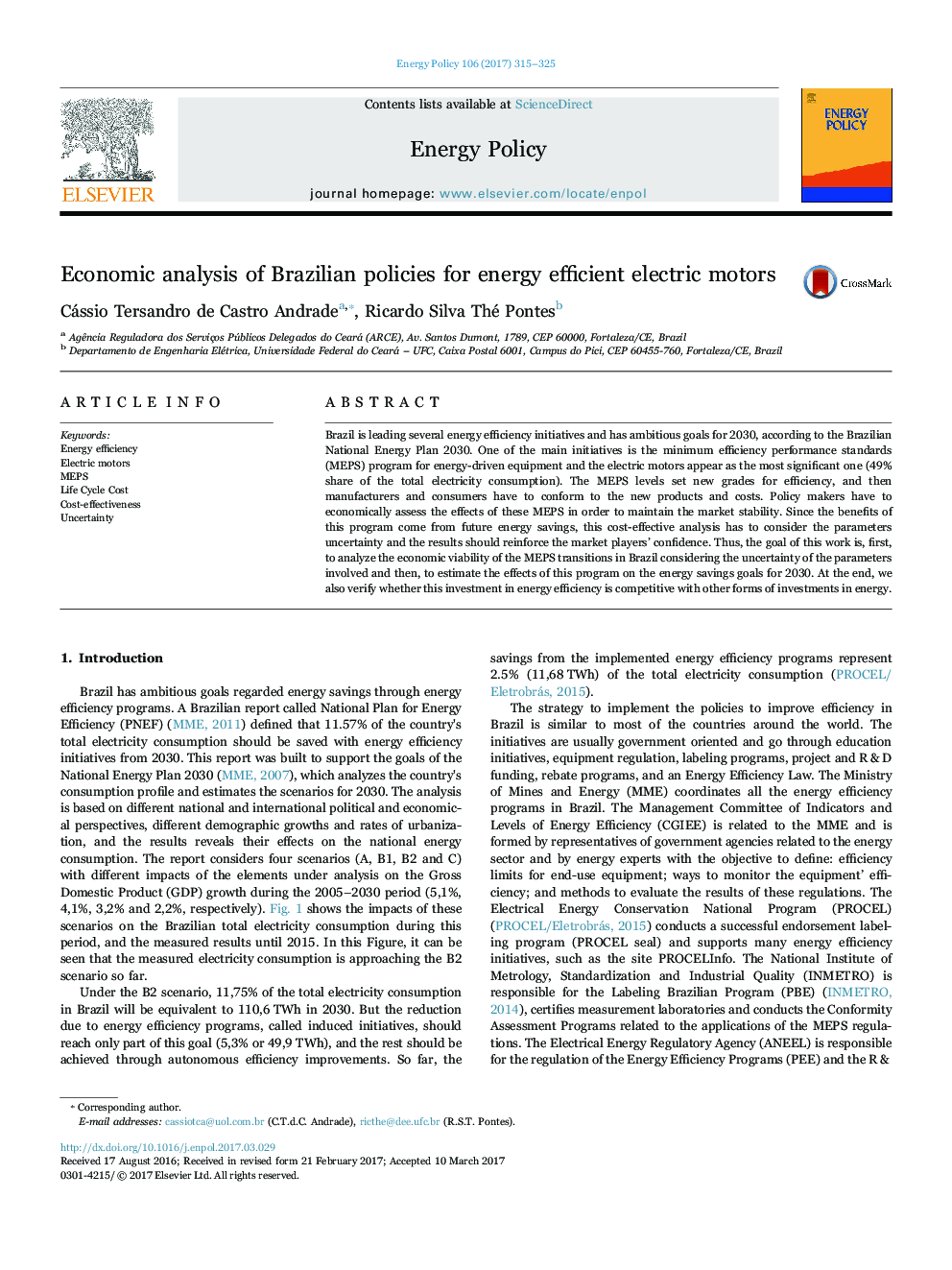| Article ID | Journal | Published Year | Pages | File Type |
|---|---|---|---|---|
| 5105780 | Energy Policy | 2017 | 11 Pages |
Abstract
Brazil is leading several energy efficiency initiatives and has ambitious goals for 2030, according to the Brazilian National Energy Plan 2030. One of the main initiatives is the minimum efficiency performance standards (MEPS) program for energy-driven equipment and the electric motors appear as the most significant one (49% share of the total electricity consumption). The MEPS levels set new grades for efficiency, and then manufacturers and consumers have to conform to the new products and costs. Policy makers have to economically assess the effects of these MEPS in order to maintain the market stability. Since the benefits of this program come from future energy savings, this cost-effective analysis has to consider the parameters uncertainty and the results should reinforce the market players' confidence. Thus, the goal of this work is, first, to analyze the economic viability of the MEPS transitions in Brazil considering the uncertainty of the parameters involved and then, to estimate the effects of this program on the energy savings goals for 2030. At the end, we also verify whether this investment in energy efficiency is competitive with other forms of investments in energy.
Related Topics
Physical Sciences and Engineering
Energy
Energy Engineering and Power Technology
Authors
Cássio Tersandro de Castro Andrade, Ricardo Silva Thé Pontes,
